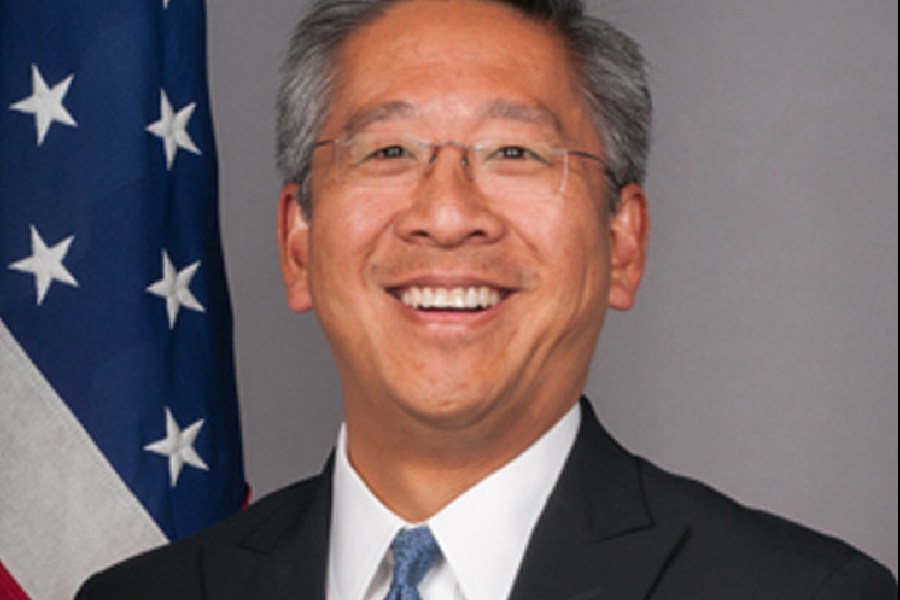The US assistant secretary at the Bureau of South and Central Asian Affairs, Donald Lu, sent letters to the three main political parties in Bangladesh — the Awami League, the Bangladesh Nationalist Party and the Jatiya Party — calling for “dialogue without any preconditions” to ensure “free, fair, impartial and participatory elections” in the neighbouring country.
The missive from Lu — and also a request from US ambassador Peter Haas on Monday for meetings with senior officials of all three major parties — prompted some political observers to speculate that Washington is likely to intensify pressure on the parties in Bangladesh, especially the ruling Awami League, in the run-up to the general elections which are scheduled in January 2024.
“I think the letter and all the actions by Haas make it clear that the US will continue to have a say on the poll process,” said the source, who did not wish to be quoted.
The twin US actions assume significance as they came close on the heels of Indian foreign secretary Vinay Kwatra’s comments in which he stated that the election in Bangladesh was an internal matter of the country.
During the India-US 2+2 Ministerial Dialogue, which began in New Delhi last Friday, Kwatra had said in response to questions from the media that India had shared its “perspective” on the neighbouring country “very clearly” to the US. “The election in Bangladesh is their internal matter and it is for the people of Bangladesh to decide their future,” Kwatra had said, adding that India respected the democratic process in Bangladesh.
The Indian perspective, experts on both sides of the border said, seemed to be a message for the US to steer clear of the election process in Bangladesh.
A source in Dhaka said that the twin developments indicated that the US establishment was not in agreement with the Indian perspective. “First, the Indian side conveyed its message.... And now, the US side has made its position clear,” said the source.
Amid frantic discussions in Dhaka’s diplomatic circles on who will prevail over whom, Jatiya Party secretary-general Mujibul Haque confirmed to reporters that his party received the letter from Lu, which was handed over by Haas.
There were also reports that Haas had locked himself in a meeting with Haque for over an hour.
The representatives of the BNP — a party known to have warm ties with the US establishment — said that they had not received any such letter.
Muhammad Ali Arafat, an Awami League MP, told The Telegraph over the phone that his party had not received any such letter till this evening.
“Even if we receive such a letter, it doesn’t matter because the question is whether the US is a stakeholder in the elections in Bangladesh... The proposal for dialogue has to come from the BNP, which is a stakeholder. The problem is they are walking the path of creating violence,” said Arafat, referring to some incidents — like arson on buses, attacks on Awami League leaders and calls for more blockades in the country — that took place on Monday.
The BNP is demanding the installation of a caretaker government for the conduct of free and fair polls. To press for the demand, they have given the call for a larger movement, which the ruling Awami League believes has been done with the approval of the US establishment.
Amid the attacks from the Awami League on the US establishment for its partisan role, a US embassy spokesperson on Monday emphasised that it does not favour any political party over the other and its sole objective was to ensure free and fair elections in a peaceful manner.
The spokesperson also called on all sides to “eschew violence and exercise restraint”.
A release from the US embassy, however, reiterated that it will pursue its new visa policy for Bangladesh — announced in May — in an even-handed manner against those who undermine the democratic election process.
While the Bangladesh political circle was abuzz with interpretations of the US actions, a source on the Indian side did not want to attach much value to the developments and stressed that
the Indian perspective — which talks about non-interference in Bangladesh’s internal affairs — would finally prevail.
“They have spoken that they would not favour any party over others... They are also talking about dialogues without any conditions.
“They have had meetings with the Opposition parties, and now they want to meet the ruling party,” said the source, refusing to read much in Lu’s letters or Haas’s actions.











